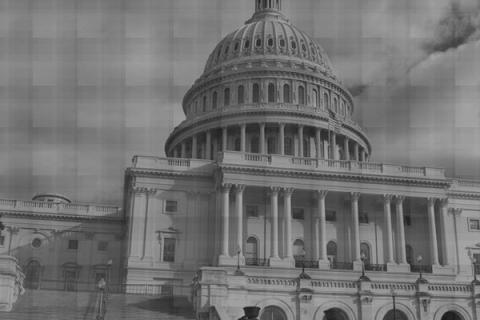
One of the few things that government in America should do is punish those who initiate force or fraud against others. The judicial system and our prisons are paid for with tax dollars and run like a government monopoly. While we demand that government be very tough on crime, Reagan Conservatives know that anything run by the government should be carefully watched. Government tends to grow and to expand its power driven by its own needs and wants.
For too long conservatives have failed to focus on the growing costs of prisons and the judicial system. Our skepticism of government promises and our usual demand to look at both costs and benefits was set aside in our understandable anger at crime and criminals. We can no longer afford to look away from growing costs and failure.
On a good day, conservatives are the champions of accountable and effective leadership, defenders of American liberty, and whistleblowers on government waste. Many organizations have noted that, perhaps more than any other area of government, the criminal justice arena is starved for conservative ideas—ideas for reducing crime, restoring victims, reforming offenders, and lowering costs.
This November, conservatives will have the opportunity to put these ideas into action by voting in favor of Proposition 36—a wise and temperate solution to the problems that have plagued the application of California’s “Three Strikes” sentencing law.
For the most part, the Three Strikes Law is a wonderful tool for protecting the public from violent and serious criminals whose very freedom poses a continuing threat to our safety. But the Three Strikes Law has also been applied in a very overbroad and inefficient way that actually threatens public safety and wastes enormous resources for no reason. It needs to be adjusted and Proposition 36 offers a common sense conservative adjustment that maintains all the value of the Three Strikes Law but eliminates its unintended and miscalculated applications.
California’s prison system is the costliest, most overcrowded in the county. Rightly or wrongly, the state is being forced by Supreme Court to release inmates early because conditions are deemed inhumane. Which prisoners will be released? As long as the current Three Strikes Law is in place, the State is precluded from releasing many inmates who are serving life sentences for crimes as minor as shoplifting a pair of shoes or stealing a loaf of bread. This means that far more dangerous inmates will be released instead. This is absurd. Proposition 36 will remedy this and allow the States to keep the most serious criminals in prison.
According to the Legislative Analyst’s Office Proposition 36 will also save California taxpayers at least $5 billion over the next twenty years to house inmates sentenced to under the Three Strikes law for nonviolent crimes. Under current law, the state must continue to incarcerate these inmates, and cover their medical costs which will escalate as they age, even though the state’s own crime assessment models say that these nonviolent Three Strikes prisoners are among the least likely to reoffend if released from prison.
In other words, dangerous criminals are being released early, and the costliest, least dangerous offenders remain behind bars. This is big government at its worst.
Prop. 36 was drafted by the Republican District Attorney from Los Angeles, Steve Cooley, and Stanford law professors to ensure that the most dangerous criminals are kept behind bars and that punishments are fairly and consistently meted out. Experience shows that it works. USC Annenberg has reported that counties that have voluntarily implemented the reforms in Proposition 36 have experienced no increases in crime. That’s why the state’s most prominent prosecutors, police chiefs, and criminal justice experts support the reform.
Make no mistake; Proposition 36 is tough on crime. Repeat offenders of serious and violent crimes will continue to get life in prison, as they should. And repeat offenders of nonviolent crimes will continue to get double the ordinary prison term for their crimes, as they should. And aging prisoners who are currently serving life sentences for nonviolent crimes will not receive shorter sentences unless a judge determines that they are no longer a threat to the community.
Proposition 36 also includes other common sense safety provisions to make sure that no truly dangerous criminals, like rapists, murders, or child molesters, can receive any benefit of the initiative, no matter how minor their third offense.
It is unjust and foolhardy to waste precious prison resources on nonviolent individuals who pose no criminal threat to our communities (while releasing violent criminals). These nonviolent offenders should be punished—but conservatives should insist the punishments are fair, effective and efficient. Proposition 36 is a reform all conservatives can and should support.
